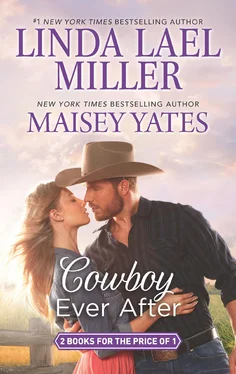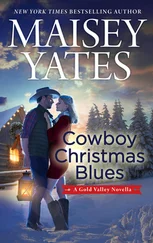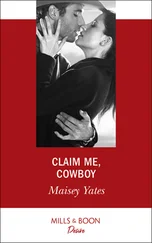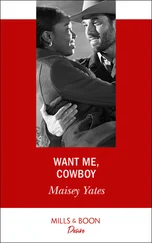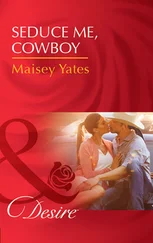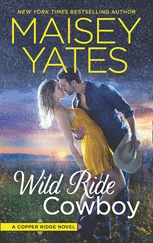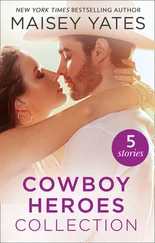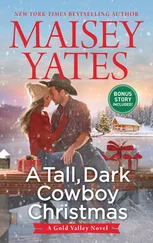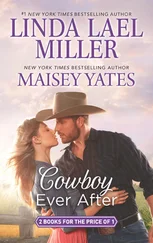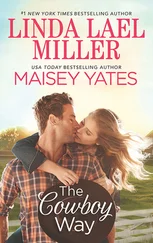The two towns were rivals in many ways, but when trouble came to one or the other, they stood up to it shoulder to shoulder.
“If you have time,” she reiterated, “I can show you through the house right now.”
“That would be great,” Walker said, rising from his chair. “I was there a few times when I was a kid, for parties and the like, but I don’t remember too many of the details.”
Kendra stood, too, simultaneously reaching for her purse and Daisy’s leash. She blushed a little, imagining the state of the Volvo’s interior. Pre-Madison and pre-dog, she’d kept her vehicles immaculate, as a courtesy to her clients, but now...
“I’m afraid my car needs vacuuming. The dog...”
Walker laughed. “Given my line of work,” he said, “I’m not squeamish about a little dog hair. Matter of fact, I have three of the motley critters myself. But I’ll take my own rig because I’ve got some other places to go to this morning, after we’re through at your place.”
Kendra nodded, clipped on Daisy’s leash and indicated that she’d be leaving by the back way, so she’d need to lock up behind Walker after he stepped outside.
“Meet you over there,” he said, and went out.
She nodded and locked the door between them.
Daisy paused for a pee break in the parking lot, and then Kendra and the retriever climbed into the Volvo and headed for Rodeo Road for the second time that morning.
* * *
“AT THIS RATE,” Hutch grumbled good-naturedly, surveying the meal Opal had just set before him—a late lunch or an early supper, depending on your perspective, “I’ll be too fat to ride in the rodeo, even though it’s only a few days away.”
Opal laughed. “Oh, stop your fussing and sit down and eat,” she ordered.
She’d been busy—had the ironing board set up in the middle of the kitchen, and she must have washed and pressed every shirt he owned because she’d evidently been hard at it all day. Except, of course, for when she took time out to build the meat loaf she’d just set down in front of him. The main dish was accompanied by creamed peas and mashed potatoes drowning in gravy; and just looking at all that food, woman-cooked and from scratch, too, made his mouth water and his stomach growl.
But he didn’t sit, because Opal was still standing.
With a little sigh and a sparkle of flattered comprehension in her eyes, she took the chair indicated and nodded for him to follow suit.
He did, but he was still uncomfortable. “Aren’t you going to join me?” he asked, troubled to notice that she hadn’t set a place for herself.
Opal’s chuckle was warm and vibrant, vaguely reminiscent of the gospel music she loved to belt out when she thought she was alone. “I can’t eat like a cowboy,” she answered. “Be the size of a house in no time if I do.”
Hutch was fresh out of self-restraint. He was simply too hungry, and the food looked and smelled too good. He took up his knife and fork and dug in. After complimenting Opal on her cooking—by comparison to years of eating his own burnt sacrifices or his dad’s similar efforts, it seemed miraculous they survived—he asked about Joslyn and the baby.
“They’re doing just fine,” Opal said with satisfaction. Her gaze followed his fork from his plate to his mouth and she smiled like she might be enjoying the meal vicariously. “Dana—that’s Joslyn’s mother, you remember—is a born grandma, and so is Callie Barlow. Between the two of them, Slade, Shea and of course the little mama herself, I was purely in the way.”
“I doubt that,” Hutch observed. Opal, it seemed to him, was more than an ordinary human being, she was a living archetype, a wise woman, an earth mother.
And damned if he wasn’t going all greeting-card philosophical in his old age.
“I like to go where I’m needed,” she said lightly.
Hutch chuckled. “So now I’m some kind of—case?” he asked, figuring he was probably that and a lot more.
Opal’s gaze softened. “Your mama was a good friend to me when I first came to Parable to work for old Mrs. Rossiter,” she said, very quietly. “Least I can do to return the favor is make sure her only boy doesn’t go around half-starved and looking like a homeless person.”
That time, he laughed. “I look like a homeless person?” he countered, at once amused and mildly indignant. Living on this same land all his life, like several generations of Carmodys before him, letting the dirt soak up his blood and sweat and tears, he figured he was about as un homeless as it was possible to be.
“Not exactly,” Opal said thoughtfully, and in all seriousness, going by her expression and her tone. “A wifeless person would be a better way of putting it.”
Hutch sobered. Opal hadn’t said much about the near-miss wedding, but he knew it was on her mind. Hell, it was on everybody’s mind, and he wished something big would happen so people would have something else to obsess about.
An earthquake, maybe.
Possibly the Second Coming.
Or at least a local lottery winner.
“You figure a wife is the answer to all my problems?” he asked moderately, setting down his fork.
“Just most of them,” Opal clarified with a mischievous grin. “But here’s what I’m not saying, Hutch—I’m not saying that you should have gone ahead and married Brylee Parrish. Marriage is hard enough when both partners want it with all their hearts. When one doesn’t, there’s no making it work. So by my reckoning, you definitely did the right thing by putting a stop to things, although your timing could have been better.”
Hutch relaxed, picked up his fork again. “I tried to tell Brylee beforehand,” he said. He’d long since stopped explaining this to most people, but Opal wasn’t “most people.” “She wouldn’t listen.”
Opal sighed. “She’s headstrong, that girl,” she reflected. “Her and Walker’s mama was like that, you know. Folks used to say you could tell a Parrish, but you couldn’t tell them much.”
Hutch went right on eating. “Is there anybody within fifty miles of here whose mama you didn’t know?” he teased between bites. He was ravenous, he realized, and slowing down was an effort. Keep one foot on the floor, son, he remembered his dad saying, whenever he’d shown a little too much eagerness at the table.
“I don’t know a lot of the new people,” she said, “nor their kinfolks, neither. But I knew your mother, sure enough, and she certainly did love her boy. It broke her heart when she got sick, knowing she’d have to leave you to grow up with just your daddy.”
Hutch’s throat tightened slightly, making the next swallow an effort. He’d been just twelve years old when his mother died of cancer, and although he’d definitely grieved her loss, he’d also learned fairly quickly that the old man believed in letting the dead bury the dead. John Carmody had rarely spoken of his late wife after the funeral, and he hadn’t encouraged Hutch to talk about her, either. In fact, he’d put away all the pictures of her and given away her personal possessions almost before she was cold in the grave.
So Hutch had set her on a shelf in a dusty corner of his mind and tried not to think about the hole she’d left in his life when she was torn away.
“Dad wasn’t the best when it came to parenting,” Hutch commented belatedly, thinking back. “But he wasn’t the worst, either.”
Opal’s usually gentle face seemed to tighten a little, around her mouth especially. “John Carmody was just plain selfish,” she decreed with absolute conviction but no particular rancor. To her, the remark amounted to an observation, not a judgment. “Long as he got what he wanted, he didn’t reckon anything else mattered.”
Читать дальше
